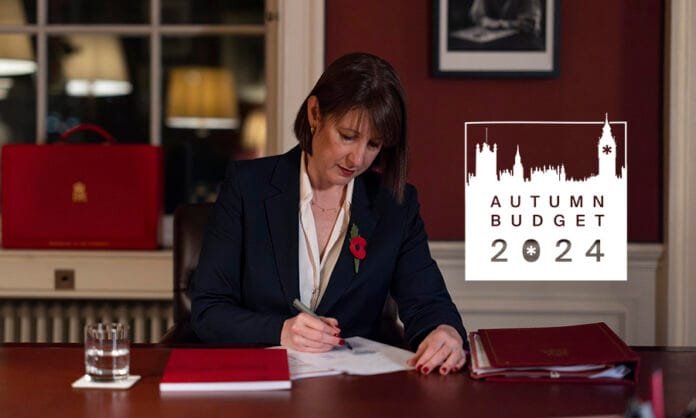The UK’s Autumn Budget 2024, presented on October 30, 2024, by Chancellor of the Exchequer, marks a critical juncture in the country’s economic policy amidst significant financial challenges. With a reported £22 billion deficit in public finances, the government faces mounting pressure to address economic stability while fulfilling commitments made during the recent election campaign. This budget comes against a backdrop of economic uncertainty characterized by inflationary pressures, rising energy costs, and a stagnant growth outlook. The Labour government, now in power, has inherited a complex financial landscape where previous tax policies and spending commitments continue to shape fiscal decisions. The budget aims to navigate these challenges while adhering to manifesto pledges that emphasize fairness and sustainability in taxation.
Key economic indicators provide context for the budget’s proposals. The inflation rate is currently hovering around 5%, which remains a significant concern for policymakers as it affects consumer purchasing power and overall economic sentiment. Projected GDP growth for 2024 is modest at approximately 1.2%, reflecting ongoing uncertainties in both domestic and global markets. Meanwhile, the unemployment rate stands at 4.3%, indicating a relatively stable labor market but with signs of strain in certain sectors. Against this backdrop, the Chancellor unveiled several key tax policy changes aimed at addressing the fiscal deficit while promoting economic growth.
One of the most notable announcements was an increase in the Energy Profits Levy from 35% to 38%, effective November 1, 2024. This move targets profits generated by energy companies amidst high consumer energy prices, aiming to raise additional revenue for public services while addressing concerns about excessive profits in a time of economic hardship for many households. Additionally, the government introduced a new Business Tax Roadmap designed to provide clarity and stability for businesses operating in the UK. This roadmap includes measures intended to foster investment and innovation within the economy, signaling a commitment to supporting business growth despite higher taxation in some areas.
To further enhance revenue generation, the government plans to close tax loopholes by increasing HMRC’s capacity to tackle tax evasion and avoidance. This initiative is expected to generate an additional £5 billion annually by 2028/29, reflecting a concerted effort to ensure that all sectors contribute fairly to public finances. Beyond tax changes, significant allocations were made towards welfare and public services in this budget. An increase in funding for the National Health Service (NHS) was announced, with an emphasis on improving service delivery and addressing backlogs exacerbated by the COVID-19 pandemic. This funding is crucial as the NHS continues to face immense pressure from rising demand and staffing shortages.
Moreover, the budget allocates funds for educational reforms aimed at enhancing skills training and supporting disadvantaged schools, reflecting the government’s commitment to social equity and long-term economic growth through education. Investment in infrastructure also remains a priority within this budget framework. Funding has been earmarked for critical transport projects across the UK aimed at improving connectivity and supporting regional development. These investments are seen as vital for stimulating economic activity and addressing regional disparities that have persisted over recent decades.
In addition to traditional infrastructure projects, the budget emphasizes green initiatives as part of a broader strategy to transition towards a sustainable economy. Funding for renewable energy projects and initiatives aimed at reducing carbon emissions underscores the government’s commitment to addressing climate change while promoting economic resilience. The proposed tax changes are expected to have far-reaching implications across various sectors of society. For businesses, the increased costs associated with the Energy Profits Levy may lead to higher operational expenses for energy companies, potentially impacting consumer prices if these costs are passed down.
However, the introduction of the Business Tax Roadmap is designed to provide certainty for investors, which may stimulate economic activity despite higher taxation in some areas. For individuals, one significant concern arises from the decision to freeze personal tax thresholds until April 2028; this fiscal drag could erode real income levels over time as inflation continues to affect disposable income. Many middle-income earners may find themselves squeezed by rising living costs without corresponding increases in their earnings or tax allowances.
Furthermore, an additional 1% stamp duty on non-residents purchasing property aims to deter foreign investment in UK real estate while generating substantial revenue for public services. While these measures are intended to create a fairer tax system and address inequalities within housing markets, they may also lead to unintended consequences such as reduced foreign investment or lower property values in certain areas. Despite positive intentions behind these budget measures, several challenges loom on the horizon. The budget’s reliance on increased tax revenues assumes stable economic conditions; however, potential downturns could undermine these projections if businesses or individuals react negatively to tax increases or if external factors disrupt economic stability.
Public sentiment regarding these tax increases—especially among middle-income earners—could lead to political backlash if citizens feel overburdened or unfairly treated by fiscal policies. The government must balance fiscal responsibility with social equity concerns to maintain public support. Additionally, successful implementation of proposed measures will require effective management and coordination across various government departments. Delays or inefficiencies could hinder progress toward achieving budgetary goals and ultimately impact public trust in government capabilities. As such, careful monitoring of economic indicators and public response will be essential as the government moves forward with these initiatives.
In conclusion, the Autumn Budget 2024 represents a pivotal moment for the UK government as it seeks to address significant fiscal challenges while adhering to its manifesto commitments. With a focus on increasing taxation on high-profit sectors and investing in public services, this budget aims to create a more equitable economic landscape that supports growth and stability amidst uncertainty. However, it also faces substantial challenges that could impact its effectiveness moving forward. As policymakers implement these strategies over the coming months and years, their ability to adapt to changing circumstances will be crucial in navigating this complex fiscal environment while fostering long-term prosperity for all citizens in the UK.
